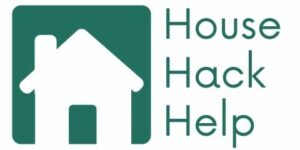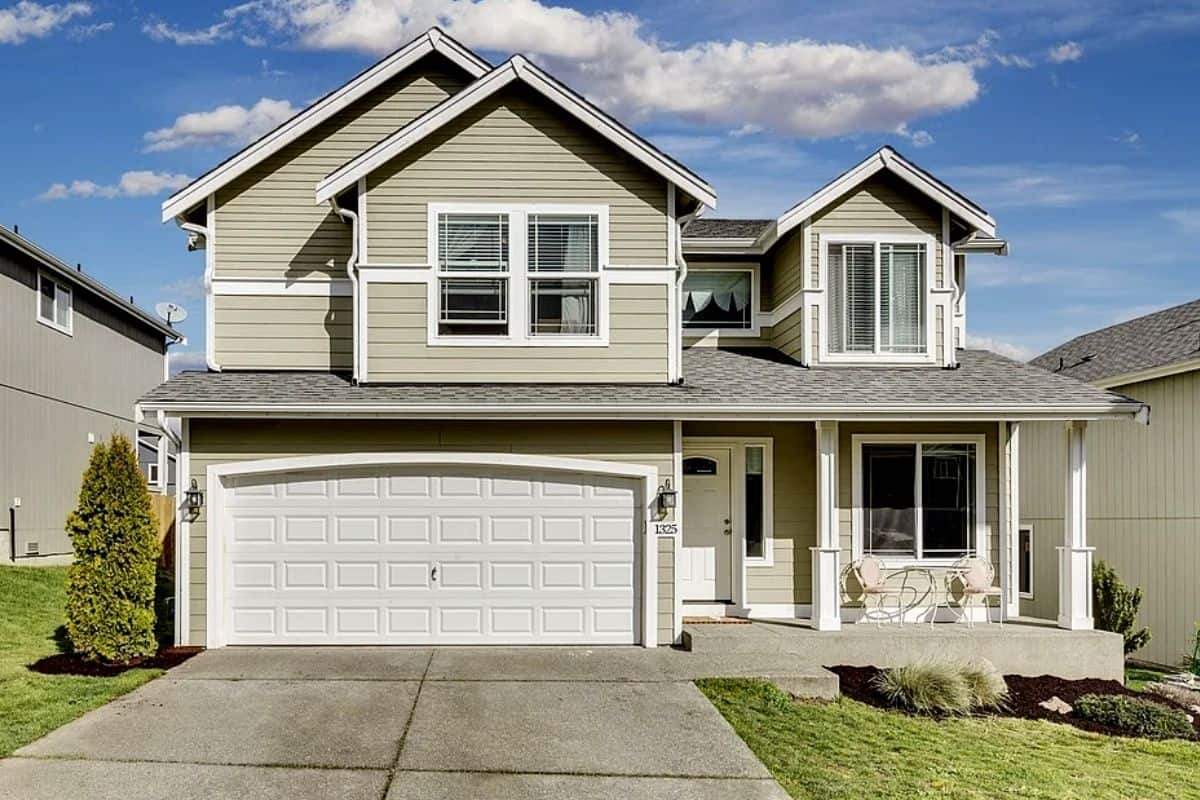House hacking is one of the lowest barrier strategies for getting started in real estate. It can also be surprisingly lucrative. At its core, house hacking is buying a primary residence with some extra space, living in it, and then renting out that extra space. While not for everyone, it’s a real estate investing strategy that many have used with resounding success. Let’s see how house hacking is most often the best strategy for beginner real estate investors
What is House Hacking?
House hacking is renting out the extra space in your primary residence. It’s really as simple as that.
You might buy a single-family home and rent out any extra bedrooms. Or maybe you buy a duplex or triplex and rent out the additional units while you live in one. Perhaps the property has a coach house that you can live in (or rent to someone else!). Needless to say, you can be flexible.

Of course, just because it’s simple, doesn’t mean it’s easy. We’ll go over some of the challenges with house-hacking in a moment, but let’s first talk about what makes house hacking such a powerful strategy.
What Makes House Hacking Powerful
House hacking is not particularly complicated. You buy the space and rent some of it out. This is not unlike many other real estate investing strategies.
But not all strategies get to take advantage of owner-occupied financing.
This type of financing typically has the best terms, by far. Not only can you get into a property with comparatively little out of pocket, even 0% down in the case of a VA loan, interest rates are usually significantly lower than a typical investment loans thanks to government subsidies.
When you house hack, you are living in the property. And because you live in the property, you can use something like a Fannie Mae conventional mortgage with a 5% down payment and a low, fixed interest rate. Good luck finding such advantageous financing without an owner-occupant requirement.
Even better, you get to keep that financing even if you decide to move out of the property!
This means that you can get into a property with a small amount out of pocket, cover some or all of your living costs in the meantime, and then keep the property (and its great financing) if you decide to move out and use it as a “traditional” rental.
But be careful; most owner-occupied loans require a buyer to live in the property for at least 1 year before he or she can rent out the entire thing. Thankfully, that doesn’t stop you from being able to rent out any extra space in the meantime. Just don’t try to defraud your lender by promising to live in the property and then renting out the entire thing while you live elsewhere. It’s never worth the legal trouble.
Why House Hacking is Great for Beginners
House hacking is like a training wheels approach to real estate investing. In a worst-case scenario, the person has to pay the mortgage on his or her house like any other homeowner. But in a best-case scenario, the rental income may completely offset the property’s expenses (and then some!).
The excellent financing options give a buyer greater flexibility on the purchase price, too. That is, an investor using 20% down financing with a 5-year balloon payment and a higher interest rate might be unwilling to pay more for a property than someone using a 3.5% down, fixed-rate FHA loan over a 30-year term.
Similarly, a deal might not pencil with typical investment property financing, but it might look great with an owner-occupied mortgage loan at the same price.
For better or for worse, house hacking forces a beginner to learn the real estate game.
Beyond the obvious benefit of actually purchasing a piece of real estate and getting a deal under your belt, house hacking is a miniature version of what a landlord might face with a much larger portfolio. The same fundamentals of property management, maintenance, and planning apply to house hacking as to a “normal” rental portfolio.
Eliminating Your Housing Costs
Let’s take a look at some numbers.
Let’s say you’re currently renting a 1 bedroom apartment for $1,100 per month. You decide that you want to get into the real estate game, and start with a primary residence.
You end up buying a $200,000 condo with 2 bedrooms and 2 bathrooms. Between your 5% down payment, some closing costs, and some initial reserves, your initial investment is $20,000.
Your mortgage payment with taxes and insurance is $1,100, and you have to pay homeowner association dues of $100 per month. Throw on a couple hundred per month in utilities and you’re looking at a total of $1,400 per month to own this condo.
But, remember, you bought a place with an extra bedroom and bathroom. You rent out your extra bedroom for $800 per month. This means that you’re only coming out of pocket for $600 per month.
But it doesn’t end there.
Because you are paying down a mortgage, you get $200 in principal paydown each month, which will accelerate over the life of the loan. So your true net cost for your housing is only $400.
Even without factoring in principal paydown and appreciation, you were still able to cut your net out of pocket housing costs nearly in half ($1,100 to $600 per month out of pocket).
That’s an extra $500 per month that you can use to invest in more real estate, accelerate your mortgage paydown, or splurge on whatever it is you want. You’ll recoup your $20,000 investment quite quickly through the savings alone.
And this isn’t even as good as house hacking can be. With a great deal, you might be able to completely offset your entire housing costs. But even with a fairly pedestrian deal, if you play your cards right, you’ll be able to eliminate a significant amount of your monthly housing costs.
Things to Watch Out For When House Hacking
House hacking is not risk free. Just like any other real estate deal, you are taking on substantial financial liability (and potentially significant legal liability as well). Between debt payments, taxes, capital expenses, and maintenance, among a host of other things, you have to keep adequate reserves to weather any storms.
The great financing options are a double-edged sword. You must be careful not to overleverage, even if the terms seem great.
If you only bring a 5% down payment to the table, realize that you will have very little equity in the property for quite some time unless you got a great deal on the property or force appreciation through an effective rehab.
This can make it more difficult to sell in a pinch, assuming the property loses value between the time you buy and sell it.
You can reduce your risk by bringing substantial reserves into the deal, though this will reduce your potential returns and potentially delay your ability to buy a property while you save up. In any event, run your numbers conservatively to help avoid disaster.
Depending on your personality, the biggest drawback of house hacking is potentially sharing space with tenants, who might be strangers.
The layout of the property will play a big role here (i.e. a duplex with separate units will allow for a lot more privacy than a 3-bedroom house with 1 bathroom), but there generally will be some sort of impact on your privacy as a house-hacker.
Also realize that house-hacking becomes a lot less attractive once you start looking at 5-unit properties or more. This is because those great financing options are limited to 1-to-4-unit properties,
Conclusion – Getting Started with House Hacking
House hacking likely remains the best strategy for beginner real estate investors. Between the great financing and ability to completely offset your housing expenses, it’s a strategy worthy of consideration for real estate veterans, too.
This website, and any communication stemming from it, should not be taken as financial or legal advice for your specific situation. Consult directly with a licensed financial professional should you need investment advice and consult directly with a licensed attorney directly should you need legal advice. Assume all links are affiliate links. I am an Amazon affiliate.


